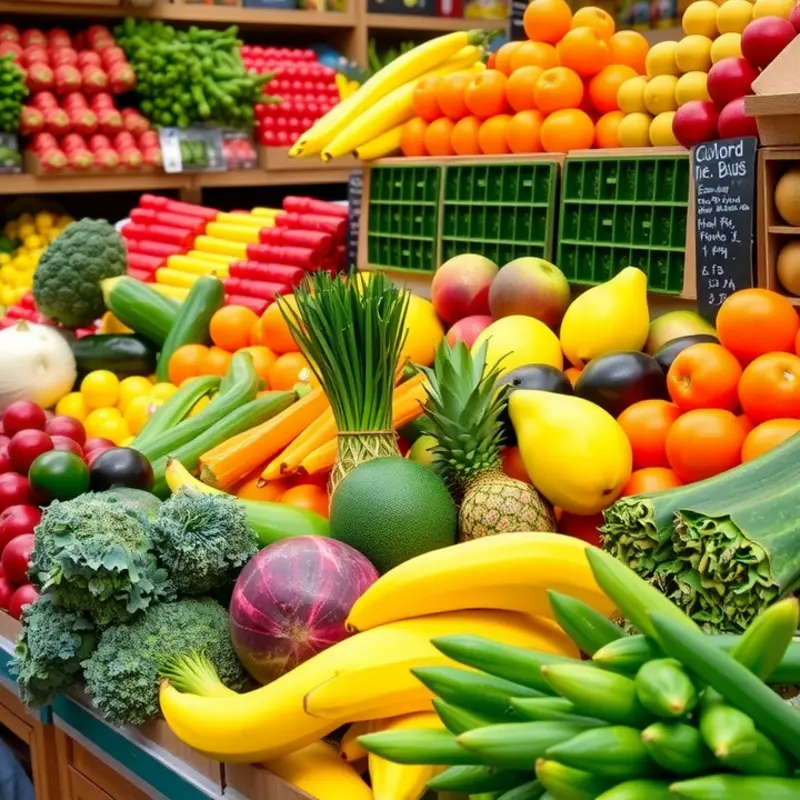As the interest in health-oriented diets grows, raw veganism has captured attention for its promise of vitality and wellness. This lifestyle embraces the consumption of unprocessed, plant-based foods that are uncooked. With its unique approach to nutrition, raw veganism offers an opportunity to explore fresh produce while maximizing nutrient intake. For those curious about this trend, understanding its principles and practical applications can illuminate whether a raw vegan diet might be a fit for you.
Understanding Raw Veganism: Principles and Benefits

Raw veganism is centered around consuming unprocessed and uncooked plant-based foods. The foundational principle is that heating food above 118°F (48°C) destroys vital nutrients and enzymes, essential for optimal health. This lifestyle prioritizes fresh fruits, vegetables, nuts, seeds, and sprouted grains and legumes.
One of the main advantages of raw veganism is its high nutrient density. Raw foods retain their fiber, vitamins, and minerals. For example, leafy greens and cruciferous vegetables provide antioxidants that can help reduce inflammation and combat oxidative stress. Consuming a diet rich in these foods is linked to improved digestion, as the fiber content helps maintain gut health and ensures regular bowel movements.
The emphasis on whole, unprocessed foods can also lead to better heart health. Nuts and seeds are excellent sources of healthy fats, including omega-3 fatty acids, which are crucial for cardiovascular function. Additionally, the absence of animal products in a raw vegan diet eliminates dietary cholesterol, reducing the risk of heart disease.
Science supports the idea that plant-based diets can help with weight management. A raw vegan diet is naturally low in calories yet filling, mainly due to high fiber content. This can lead to lower caloric intake without the feeling of deprivation. Research indicates that individuals following plant-based diets often have a lower body mass index (BMI) compared to those consuming traditional diets. This aspect of raw veganism aligns with broad narratives on healthier weight maintenance strategies, including mindful eating practices found here.
Moreover, raw veganism may bolster energy levels. Many raw vegans report feeling more energized, which can be attributed to the diet’s provision of more phytonutrients and lack of processed, energy-draining foods. This increase in vitality often goes hand in hand with improved mental clarity and focus, potentially linked to stable blood sugar levels maintained by a consistent intake of fruits and vegetables.
However, it is important to ensure nutritional adequacy in a raw vegan diet. Critical nutrients like vitamin B12, iron, calcium, and omega-3 fatty acids must be carefully monitored and possibly supplemented, as they are predominantly found in animal products. Strategizing your meal plans to incorporate a variety of plant-based nutrient sources is essential for maintaining overall health. Resources discussing nutritional adequacy basics can be invaluable for those new to plant-based diets.
In conclusion, raw veganism offers numerous health benefits grounded in sound nutritional principles. The lifestyle invites individuals to appreciate the abundance of flavors and nutrients found in their most natural form. Adopting a raw vegan diet involves more than merely changing what you eat; it encourages awareness and mindfulness about the quality and origins of your foods.
Getting Started: Practical Tips for Aspiring Raw Vegans

Embarking on a raw vegan journey requires practical strategies to ease into the lifestyle. Begin with planning, the cornerstone for a smooth transition. Start by incorporating raw foods into one meal daily. Breakfast offers an easy start, with options like chia pudding or a fruit smoothie. Gradually, increase raw components in other meals.
Grocery shopping for raw vegan foods demands awareness and intention. Focus on purchasing a variety of fresh, organic fruits and vegetables. Stock up on nuts and seeds, a fundamental source of protein and essential fats in a raw vegan diet. Whole grains like quinoa can be sprouted and added to salads. Seaweeds, often overlooked, introduce vital minerals and diverse flavors.
A vital tip is to embrace seasonal eating. Seasonal produce is fresher, tastier, and often more affordable. Plan meals around in-season ingredients to enhance nutrient intake. While shopping, opt for bulk sections for nuts, seeds, and dried fruits, avoiding processed or packaged items.
Transitioning smoothly into a raw vegan lifestyle involves reimagining traditional dishes. For instance, replace pasta with spiralized zucchini noodles topped with fresh tomato and basil sauce. Explore wraps using large leafy greens like collards or romaine, filled with a variety of vegetables and a sprinkle of seeds.
Experimentation in the kitchen is key. Try simple recipes like a luscious raw avocado and mango salad: dice avocado, mango, and red onion, then toss with lime juice and cilantro. Season lightly with sea salt and pepper for a refreshing dish.
Incorporating more raw meals doesn’t have to mean complicated culinary techniques. Simple snacks like sliced cucumber with hummus or an apple with almond butter are both satisfying and nourishing. For more elaborate creations, a food dehydrator can assist in preparing raw crackers and breads, which add texture to meals.
Maintaining variety is crucial to avoid monotony. Rotate different fruits, vegetables, and nuts in your diet. Pay attention to color—your meals should be as vibrant as they are nutritious. This ensures a wide range of vitamins and minerals.
If you’re concerned about nutrient balance on a raw vegan diet, take a look at this guide on nutrition basics, which explains how to maintain nutritional adequacy. Staying informed helps mitigate potential deficiencies.
Building a new lifestyle also involves patience. Adjustments take time, and it’s okay to face challenges. Keep exploring, learning, and trusting the process. Remember, the goal of raw veganism is to enrich your life with vitality and wellness through plant-based nourishment.
Final words
Raw veganism presents a vibrant avenue for exploring nutrition, focusing on whole, unprocessed foods. Those drawn to this lifestyle may find renewed energy and health benefits from the fresh and uncooked produce. While transitioning can be a journey, with the right resources and mindset, it can lead to a fulfilling dietary experience. It’s essential to remain informed and perhaps consult with a nutritionist to ensure a balanced approach. Whether you’re looking to try raw meals occasionally or fully dive into a raw vegan lifestyle, embrace the adventure of discovering plant-based and nutritious options.








